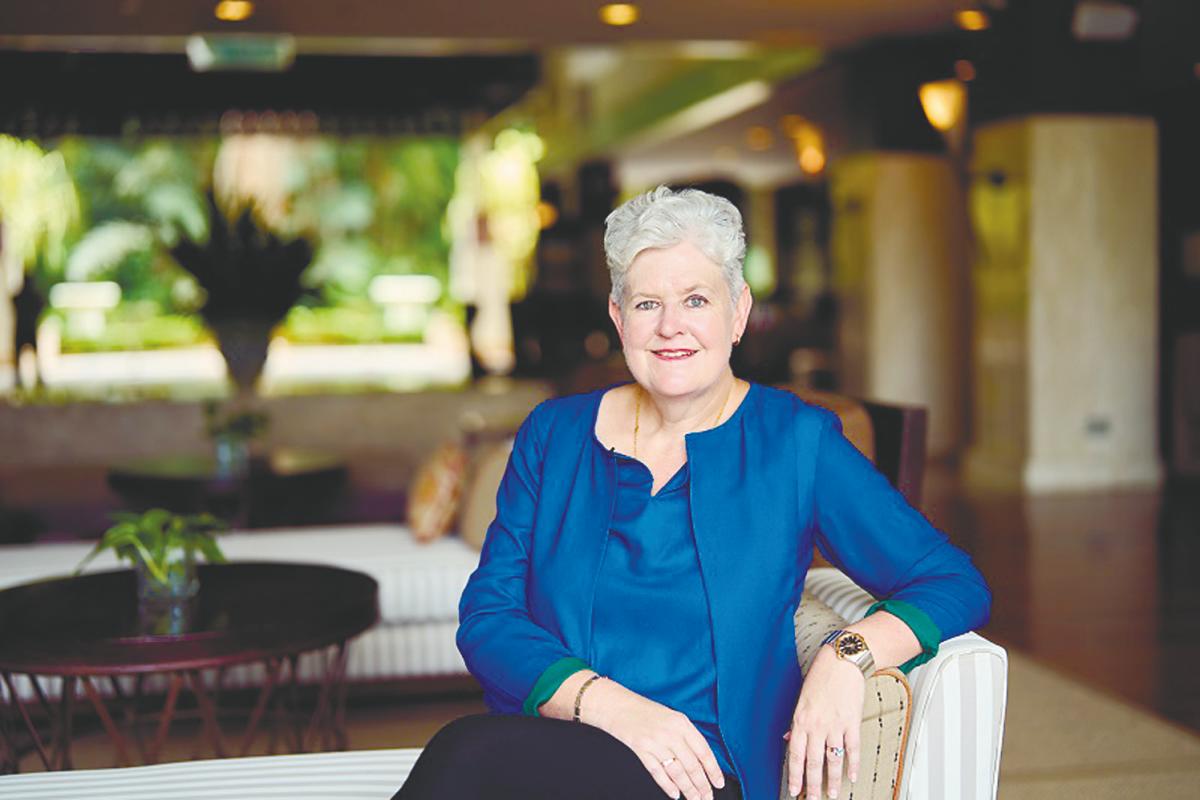PETALING JAYA: Shangri-La Rasa Ria in Kota Kinabalu is strategically positioned to serve as an ideal platform supporting Sabah’s advancement towards community-based tourism, in alignment with the objectives set forth by the Sabah Tourism Board.
“It’s about creating moments that matter – grounded in our surroundings and led by our people,” general manager Fiona Hagan told SunBiz in an interview via email.
She said the resort’s collaboration with Universiti Malaysia Sabah facilitates several ongoing research initiatives and conservation education programmes. The partnership ensures guests engage in meaningful learning and contribute to sustainable tourism practices, reinforcing the destination’s commitment to responsible and impactful visitor experiences.
Encompassing 400 acres of beachfront, rainforest, and protected reserve, Shangri-La Rasa Ria offers immersive cultural and nature-based experiences.
Hagan said that apart from local cultural attractions, today’s guests seek experiences rooted in wellness, nature and authenticity.
“We have shaped our programming around sunrise hikes and winged wonders, buggy tours and birdwatching, beach walks, and marshmallow roasting at sunset. Families can learn about biodiversity together, while couples can reconnect with nature in simple, memorable ways.”
On Shangri-La Rasa Ria’s achievement in securing Asean Green Hotel Standard classification, Hagan said the recognition reflects the resort’s ongoing efforts to build a truly sustainable operation.
“At Shangri-La Rasa Ria, our EcoRia platform drives our environmental strategy – from rainwater harvesting and in-house bottling to LED retrofitting and achieving a 63.21% waste diversion rate. We are the first hotel in Malaysia certified under ISO 20121 for sustainable event management.
“These milestones reinforce our commitment to the Triple S pillars – Stay Responsibly, Savour Sustainably and Shine Through Collective Impact,” she said.
Asked what sets Shangri-La Rasa Ria apart from other resorts, Hagan highlighted its people and commitment to guest experience.
“Through continuous upskilling, daily training, and our planned National Dual Training System (NDTS) accreditation, we are investing in the future of hospitality. We also consistently refine our guest programming – from cultural workshops to nature exploration – to ensure it evolves in line with guest expectations.
“Our strength lies in delivering quality experiences with authenticity, supported by a team that genuinely cares,” she said.
Hagan noted a shift in the resort’s primary guest demographics, with more families, independent travellers and those seeking meaningful cultural and community connections now making up the core audience.
To meet evolving traveller expectations, the resort is enhancing its offerings.
“We are excited to introduce our upcoming Cultural Village, featuring a bamboo house crafted by local artisans, which will host dance performances, storytelling sessions, and local markets.
“Additionally, we have expanded our food and beverage programming with initiatives like the Rasa Ria Chef’s Garden and the Rooted in Nature menus, celebrating Sabah’s rich culinary heritage and local ingredients.
“These experiences enable our guests to engage more deeply with the culture and environment,” Hagan said.
The resort has planned several enhancements, including new facilities and culinary expansions, to elevate the guest experience and uphold Shangri-La’s premium positioning.
“Later this year, we will open the bamboo house as part of our Cultural Village, providing an immersive space for guest engagement, cultural exchange, and event hosting. Additionally, we are expanding our Asian cuisine offerings to feature live, sustainably sourced seafood, reflecting Sabah’s renowned status as a seafood destination.
“These developments, alongside ongoing service and product improvements, underscore our commitment to delivering luxury with substance,” Hagan said.
Shangri-La Rasa Ria is also leveraging technology and digital innovation to enhance both guest engagement and operational efficiency by integrating multiple digital touchpoints for a seamless guest experience.
Guests can now use mobile check-in, access activity booking kiosks and manage all service requests through the Shangri-La App. Additionally, 24/7 messaging support is available via WhatsApp and WeChat, enabling real-time communication.
These tools allow the resort to deliver prompt, personalised service while maintaining a strong human connection.
Asked what are the biggest challenges and opportunities for Malaysia’s luxury resort sector over the next five years, Hagan pointed to talent development and environmental, social and governance (ESG) integration.
“Attracting and developing hospitality talent, especially in regional areas, is a critical challenge. Our approach is to grow from within by offering structured training, clear career pathways, and launching our NDTS-accredited training centre.
“Simultaneously, ESG integration is reshaping luxury travel, and guests now demand transparency, connection, and purpose. Through local sourcing, sustainability education, and digital engagement, we are committed to keeping Shangri-La Rasa Ria future-ready and aligned with evolving guest expectations,” she said.
Shangri-La Rasa Ria is also positioned as a preferred destination for both weddings and business events, capable of hosting intimate gatherings of 15 guests to large-scale functions accommodating up to 1,000 attendees.
With its private beachfront, expansive landscaped gardens and versatile open spaces, the resort offers flexibility for a wide range of events – from sunset beach weddings and garden receptions to structured business conferences and meetings.









